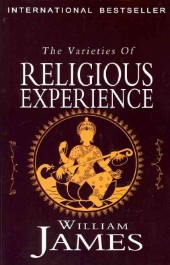Synopsis
The Varieties of Religious Experience, first delivered as the Gifford Lectures in Edinburgh, was published in 1902 and quickly established itself as a classic. The book is not concerned with institutional religion. Its subtitle is “A Study in Human Nature,” and author William James defines his subject as the feelings, acts, and experiences of individuals in relation to what they consider to be divine. His broad topics include the religion of healthy-mindedness; the sick soul; the divided self and its unification; conversion; saintliness; and mysticism. These and other phenomena are vividly documented by individual case histories—recorded in autobiographies, diaries, confessions, and similar writings—drawn from the whole range of world literature.






